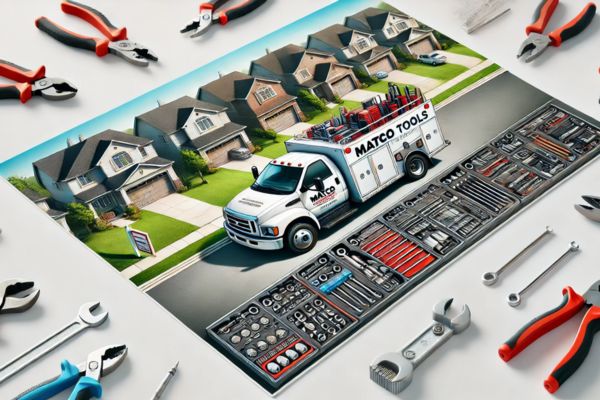Matco Tools is a well-known franchise in the automotive tools industry, offering individuals the opportunity to operate their own business under a trusted brand. However, like any franchise model, success isn’t guaranteed, and understanding the “Matco franchise failure rate” is essential for prospective franchisees. This article delves into the factors affecting the Matco franchise failure rate, its potential causes, and what can be done to mitigate risks.
What Is the Matco Franchise Failure Rate?
The Matco franchise failure rate refers to the percentage of Matco franchisees who are unable to sustain their business and eventually close operations. Although specific and up-to-date statistics on the Matco franchise failure rate are not always readily available, historical data and anecdotal evidence suggest that failure rates can vary based on numerous factors, including economic conditions, franchisee preparedness, and market dynamics.
Understanding these rates provides valuable insights into the challenges and opportunities associated with running a Matco Tools franchise.
Factors Influencing the Matco Franchise Failure Rate
Several key factors contribute to the Matco franchise failure rate. Prospective franchisees should carefully consider these aspects before making an investment:
Financial Challenges
Starting a Matco franchise requires a significant initial investment, which includes costs for inventory, vehicle leasing, and operational expenses. Franchisees must also account for ongoing expenses such as royalty fees and marketing costs. A lack of adequate capital or financial mismanagement can lead to cash flow issues, increasing the likelihood of failure.
Market Competition
The automotive tools market is highly competitive, with established brands such as Snap-on and Mac Tools vying for market share. Franchisees operating in oversaturated markets may find it difficult to differentiate their offerings and build a loyal customer base, contributing to the Matco franchise failure rate.
Lack of Business Experience
While Matco provides training and support, franchisees without prior business or management experience may struggle to handle day-to-day operations, including customer service, inventory management, and financial planning. This can adversely affect their ability to sustain the business.
Economic Conditions
External economic factors, such as recessions or fluctuating consumer spending, can significantly impact franchise success. During economic downturns, demand for non-essential automotive tools may decrease, making it challenging for franchisees to maintain profitability.
Local Market Dynamics
The success of a Matco franchise heavily depends on the local market’s demand for automotive tools. Franchisees in areas with limited customer bases or low demand for such products may face higher risks of failure.
Comparing the Matco Franchise Failure Rate to Industry Standards
It’s important to compare the Matco franchise failure rate with industry averages to gain perspective. According to general franchise statistics, about 20% of new businesses fail within their first year, and nearly 50% close within five years. While franchising typically offers a lower failure rate compared to independent businesses, the Matco franchise failure rate may align with these general trends depending on external and internal factors.
Steps to Reduce the Matco Franchise Failure Rate
To address the Matco franchise failure rate and improve the chances of success, franchisees can take the following steps:
Conduct Thorough Research
Prospective franchisees should perform extensive research on the Matco franchise model, including analyzing the local market, competition, and potential customer base. This ensures a clear understanding of the business landscape.
Financial Preparedness
Ensuring sufficient financial resources is critical. Franchisees should not only account for initial investment costs but also set aside a financial buffer to cover unforeseen expenses during the initial stages of operation.
Leverage Franchisor Support
Matco Tools provides training programs, ongoing support, and resources to help franchisees succeed. Taking full advantage of these offerings can significantly improve operational efficiency and overall success.
Develop a Solid Business Plan
A comprehensive business plan outlining goals, strategies, and projected financials is essential. This serves as a roadmap for managing the business effectively and addressing challenges proactively.
Build Strong Customer Relationships
Establishing and maintaining good relationships with customers is vital for repeat business. Franchisees should focus on delivering high-quality products and excellent customer service to build loyalty and trust.
Real-Life Experiences and Lessons Learned
Hearing from current and former Matco franchisees provides valuable insights into the challenges and successes of operating a franchise. While many have reported positive experiences and achieved financial independence, others have faced difficulties related to market competition, financial strain, and operational inefficiencies. These experiences highlight the importance of preparation and adaptability in navigating the demands of franchise ownership.
The Role of Matco in Addressing Franchisee Challenges
To minimize the Matco franchise failure rate, the company plays a crucial role in supporting its franchisees. This includes:
- Offering robust training programs to equip franchisees with essential skills.
- Providing marketing support to enhance brand visibility and attract customers.
- Regularly updating franchisees on industry trends and best practices.
- Encouraging open communication and addressing franchisee concerns promptly.
Conclusion
The Matco franchise failure rate is influenced by a variety of factors, from financial challenges and market competition to external economic conditions. While franchising with Matco Tools offers significant opportunities, success depends on thorough preparation, financial planning, and leveraging available support. By understanding the potential risks and taking proactive steps, prospective franchisees can maximize their chances of building a successful and sustainable business.



